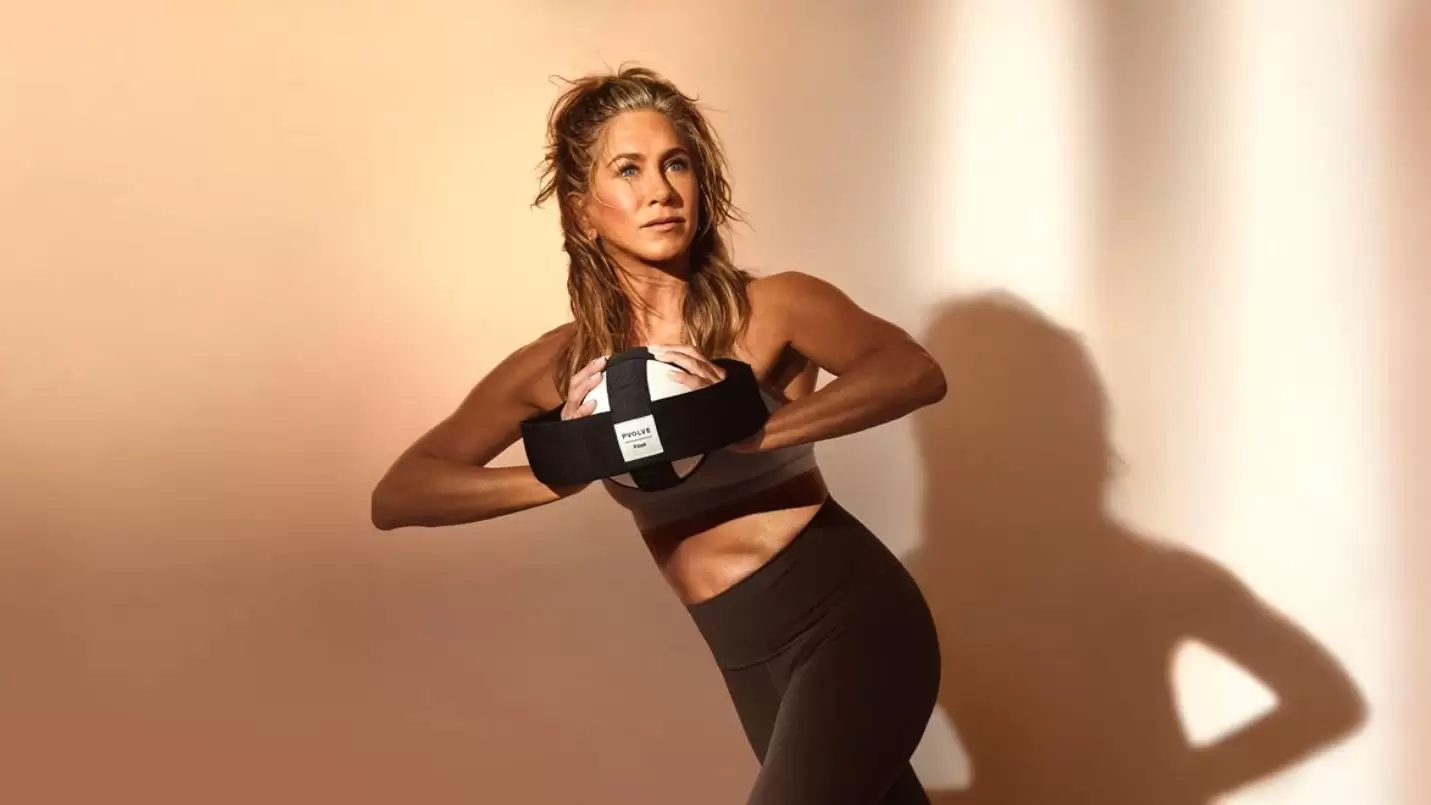Pvolve review — Jennifer Aniston’s go to home workout equipment lives up to the hype
Share- Nishadil
- January 17, 2024
- 0 Comments
- 9 minutes read
- 107 Views

Pvolve review — Jennifer Aniston’s go to home workout equipment lives up to the hype
A review of the Pvolve fitness platform here's how we found Jennifer Aniston's go to home workout app
When it comes to home workout equipment, your options are endless — from expensive exercise bikes and treadmills to resistance bands and ankle weights . That said, as a fitness editor, I truly believe the best items to buy are the ones that motivate you to move, and one workout platform getting a huge amount of attention right now is Pvolve.
Endorsed by Jennifer Aniston, who credited Pvolve for getting her in “better shape than [she] was in her twenties”, after feeling burnt out and broken by intense cardio, the workout platform uses resistance equipment to sculpt strong muscles, without impact. To see what all the fuss was about, I used the platform for three months — read my full Pvolve review below to find out more.
Like a lot of the best workout apps, Pvolve works on a subscription basis, although you’ll also need to buy the equipment to get started. For the app, there’s a monthly or an annual subscription, the latter working out cheaper ($15 per month, or $8 per month if you take out an annual subscription).
There are also bundles, where you can buy the equipment and either a month or a year subscription to classes — at the time of writing, the Signature Bundle, which includes the P.ball, P.band, and precision mat, costs $200, whereas the Total Transformation Bundle, which includes girders, ankle bands, and ankle weights as well as a year’s worth of classes costs $625.
I’ll go into more detail about the equipment below, but for this review, I purchased the Signature Bundle. I already had access to light dumbbells, a set of the best ankle weights, and some gliders from my lockdown home workouts. There are also bodyweight workouts on the platform if you’re waiting for your equipment to arrive, or you want to sample the workouts before you commit.
I’ll admit, I was skeptical about whether or not I needed the equipment that came with the Pvolve bundle — I already had a set of the best resistance bands and a Pilates ball, so what was the fuss all about? Turns out I was wrong, and that the equipment is actually a pretty integral part of the Pvolve method.
The P.ball is a thick rubber Pilates ball, wrapped in thick straps that you can adjust the resistance of. These are either wrapped around your thighs, legs, or ankles during exercises. While I was waiting for the ball to arrive, I used my regular Pilates ball and found it much harder to keep the ball in place during some of the more dynamic moves.
The P.ball really helps you isolate the small muscles in your legs during workouts. The P.band is a resistance band with hand attachments — the gloves make it easier to grip the band as you row, and curl. I’ve always struggled with holding a resistance band tight enough to make a difference during workouts, so really appreciated the hand attachments.
There’s also the Precision Mat, which is a square yoga mat divided into nine blocks — this probably isn’t all that essential, but the instructors do use it a lot during classes, so it can help with getting the right foot positioning. As mentioned above, there are also additional items you can buy — from light dumbbells for the weight training classes to ankle weights and gliders.
All of the equipment I ordered came in a handy tote bag, which made it easy to fold everything away and store it when I wasn’t working out. Of course, the magic of any home workout is in the classes. Pvolve has a good mix of classes on the app — from full body sculpt classes, to progressive weight training and mobility.
You can filter classes based on the equipment you have, or want to use, and there are several different programs available, based on your goals. I started with the beginner program, which I found was a great introduction to the Pvolve method. The moves felt pretty similar to those you might practice in a Pilates or Barre class, but I felt my muscles working hard.
During my testing, I discovered I was pregnant, and I was thrilled to hear that all of the Pvolve classes were safe to practice during pregnancy. As my bump got a bit bigger, I was able to tune into the specific prenatal series, and I’m looking forward to moving onto the postnatal series to help me work my core after birth.
(Of course, as with all prenatal and postnatal classes, it’s recommended that you check with your doctor or midwife before taking on a new routine). The Pvolve library has a huge collection of on demand classes, filmed with an instructor or two in a studio — often with one instructor offering modifications during the course of the class.
There are also live classes, which you reserve a spot on, and join via Zoom. For these classes, you’re encouraged to have your camera turned on, so your instructor can offer feedback, just as they would in any other fitness class. I found these extremely helpful, especially in the early stages of pregnancy, when I wasn’t sure what I should, or shouldn’t be doing during workouts.
I also appreciated that Pvolve keeps the live groups relatively small, so you feel like you’re getting a good amount of time with your instructor. Another thing I really liked about the Pvovle platform, is that the focus definitely isn’t on sculpting a six pack. A lot like Pilates or yoga, Pvolve has its own methodology, and I found there was a focus in the class to move in a way that felt right for me.
Of course, that’s not to say I didn’t see the benefits — despite not getting overly sweaty or torching hundreds of calories, I felt every workout the next day, especially the upper body sessions using the P.band. But how does Pvolve compare to the likes of Peloton, NordicTrack, and Alo Moves? While there is a good amount of variety in the classes, if you’re coming from Peloton, the first thing you’ll notice is there’s a lot less focus on the instructors.
Part of the reason so many of us flocked to Peloton during the pandemic was that it felt like we were hanging out with a friend — it’s the same reason why some of the instructors have thousands of followers on Instagram. Pvolve doesn’t have the same peppy energy, but for some, that’ll be a good thing.
There’s also less focus on the music in Pvolve, which again, some will appreciate, others will miss. I wished there was the option to tailor the music I was listening to in class, but that’s not to say this isn’t something the platform will add in the future. I’d also say Pvolve isn’t quite as seamless yet — I missed the option to stack classes on top of one another, which you can do on the Peloton app and apps like Apple Fitness Plus.
Having to return to the home screen and find your next class if you’d like a longer workout is a little fiddly. As a Pilates and Barre fan, I have loved Pvolve — it’s a fun way to add challenging, low impact workouts to your routine, and the instructors are fantastic. I finished every workout feeling good, and I could feel that my muscles had worked the next day.
That said, in order to really get the most out of Pvolve, you’ll need to spend at least $200 buying the equipment. After the week of bodyweight workouts waiting for my Signature Bundle to arrive, I was bored, and I couldn’t imagine there’d be enough on the platform to keep me occupied without the extra equipment.
If you’re someone who prefers HIIT training or cardio classes, Pvolve isn’t for you. However, if you’ve been looking for functional training designed for women, this is the home workout platform you’ve been waiting for..
Disclaimer: This article was generated in part using artificial intelligence and may contain errors or omissions. The content is provided for informational purposes only and does not constitute professional advice. We makes no representations or warranties regarding its accuracy, completeness, or reliability. Readers are advised to verify the information independently before relying on







